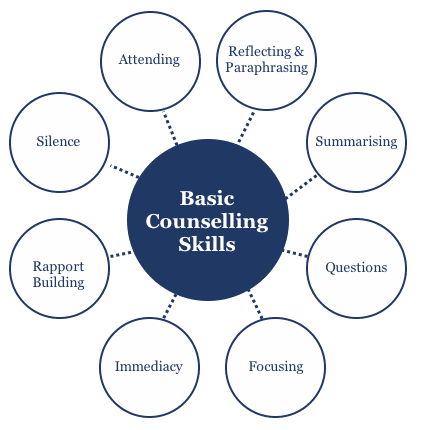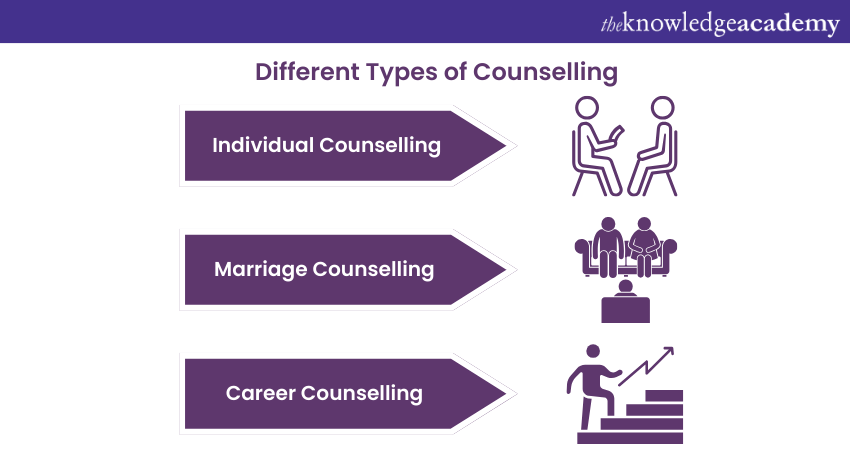A Comprehensive Guide to the Different Sorts Of Therapy and Their Effect
Counseling includes a selection of restorative approaches, each developed to meet special mental wellness demands. From the organized strategies of Cognitive-Behavioral Treatment to the empathetic nature of Person-Centered Therapy, these techniques provide unique pathways to personal development. Family members treatment and Dialectical Behavior modification offer additional structures for recovery, while team therapy fosters community support. Understanding these diverse methods can illuminate their extensive effect on specific health. What continues to be to be explored are the details of each approach.

Understanding Cognitive-Behavioral Therapy (CBT)
Although numerous restorative methods exist, Cognitive-Behavioral Therapy (CBT) stands apart because of its structured, goal-oriented nature. This kind of treatment is based upon the premise that ideas, feelings, and actions are interconnected, and by changing negative idea patterns, people can alter their psychological feedbacks and activities. CBT employs numerous strategies, such as cognitive restructuring, which helps customers recognize and challenge distorted beliefs. Behavioral activation encourages interaction in satisfying activities to deal with depression.
Normally, CBT is a temporary therapy, usually lasting in between 12 to 20 sessions, making it available for those seeking quick outcomes. Its performance has been well-documented in dealing with anxiety conditions, clinical depression, and other mental health and wellness concerns. The specialist's duty is to assist clients through workouts and research assignments, fostering self-awareness and advertising long-term coping strategies. This practical strategy equips individuals to take control of their mental wellness, eventually causing boosted life fulfillment.
Exploring Person-Centered Therapy
Person-Centered Treatment, created by Carl Rogers, provides a contrasting technique to Cognitive-Behavioral Treatment by stressing the client's subjective experience. This therapeutic version focuses on the individual's viewpoint, fostering an atmosphere of compassion, unconditional positive respect, and authenticity. By permitting customers to explore their feelings and thoughts without judgment, specialists help with individual growth and self-discovery.
The core tenet of Person-Centered Treatment is the idea that individuals have the integral ability for self-healing and personal growth. In this setting, the specialist acts as a supportive overview as opposed to a regulation authority, motivating clients to organize their very own journey. This method is especially reliable for those coming to grips with problems such as reduced self-confidence, anxiety, or depression, as it empowers them to challenge and understand their emotions. Ultimately, Person-Centered Treatment grows a solid restorative alliance, fostering trust fund and openness crucial for purposeful change.
The Duty of Household Treatment in Healing
Family therapy works as an essential element in the recovery process for people and their relationships. This therapeutic approach focuses on enhancing interaction, dealing with disputes, and cultivating deeper links amongst household participants. By dealing with useless characteristics, family therapy encourages each participant to reveal their ideas and sensations in a secure setting, advertising understanding and empathy.

The influence of family members therapy prolongs past the sessions, as enhanced connections can bring about improved psychological well-being for all entailed. In general, family members treatment plays an important function in recovery by fostering unity, durability, and mutual assistance among relative, inevitably assisting them toward a much healthier, much more fulfilling life together.
Unloading Dialectical Behavior Modification (DBT)
Building on the foundation of healing strategies that improve emotional well-being, Dialectical Behavior modification (DBT) provides a structured structure for individuals having problem with extreme feelings and behavioral you can try these out challenges. Established by Marsha Linehan, DBT integrates cognitive-behavioral strategies with mindfulness techniques, intending to assist customers take care of overwhelming sensations and boost interpersonal efficiency.
The therapy is especially valuable for those diagnosed with Borderline Personality Disorder yet is also appropriate to a series of other psychological health issues. low cost therapy. DBT contains individual therapy sessions and abilities training teams, concentrating on 4 key capability: mindfulness, distress resistance, emotion regulation, and social performance
The Advantages of Group Therapy Sessions
While private therapy provides beneficial insights, group therapy sessions provide unique advantages that can greatly improve the restorative experience. One crucial advantage is the feeling of area that emerges among participants. People often find convenience in sharing their experiences with others dealing with similar difficulties, fostering an encouraging setting that minimizes feelings of seclusion.
Team sessions encourage diverse point of views, permitting individuals to learn from each other's coping strategies and insights. This collective knowledge can bring about enhanced problem-solving capacities and a broader understanding of personal concerns.
In addition, group therapy usually advertises accountability, as participants encourage one an additional to seek their goals and follow their dedications. The cost-effectiveness of team treatment makes it an obtainable option for lots of individuals looking for assistance. Generally, the collaborative nature of group therapy sessions can considerably enhance the restorative trip.
Often Asked Questions
What Qualifications Do Specialists Need to Exercise Therapy?
Specialists generally require an appropriate level in psychology or therapy, along with monitored professional experience. Additionally, they need to obtain suitable licensure or certification to practice legitimately, making certain adherence to expert standards and honest standards.
Just how Do I Select the Right Type of Therapy for Me?
Selecting the best kind of treatment includes evaluating personal demands, exploring numerous techniques, taking into consideration specialist specializeds, and seeking recommendations. Understanding private goals and choices can significantly improve the performance and fulfillment of the healing experience.

Are Online Therapy Sessions as Effective as In-Person Ones?
The efficiency of on-line therapy sessions compared to in-person ones typically relies on private preferences and conditions. Study shows that both methods can generate favorable results, though some might discover better comfort in face-to-face communications.
How Lengthy Does Counseling Normally Last?

What Should I Expect During My Initial Counseling Session?
During the very first counseling session, customers can expect an introduction, conversation of their issues, facility of their explanation goals, and an overview of the therapy process - low cost therapy. This initial conference aims to build connection and guarantee convenience